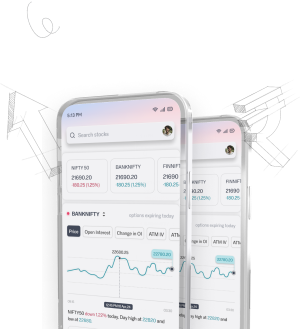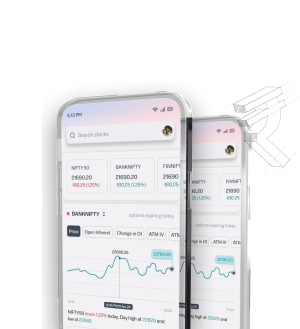DP Charges: What Are Depository Participant Charges in the Indian Stock Market?
Nowadays, people are becoming aware of investments and their benefits in the long run. Investment can be of many kinds, such as investment in shares, also known as trading, mutual funds etc. One cannot invest in any stock or securities directly, and to invest money in any stock or securities, a demat account is required. The same can be opened and maintained by paying certain charges or, say, DP charges. As an investor or trader, it is important to be aware of all the charges associated with the trading.
What is a Depository Participant?
Before heading towards DP charges, it is important to know what DP is, i.e., depository participant. A depository participant is a mediator between investors and depositors, and that can be a broker or bank. DP offers a platform for investors to open a Demat account from where investors can do the trading.
What are DP Charges?
DP charges are the charges paid by the investors to the depository participants (DP) to hold and maintain a demat account. Opening a demat account is mandatory to invest in stocks and securities. A debit account works the same as a bank account, and instead of money, it holds shares and securities in an electronic form, just like banks charge for the various services provided by them, DP also charges for services such as the sale or purchase of shares, accuracy and record of transactions etc.
How Do DP Charges Work in the Indian Stock Market?
Who Charges DP Fees?
The depository participants levy DP charges. Depository participants are the entities that are authorized to create demat accounts on behalf of investors. In India, NSDL & CDSL are the authorized depositories that keep the record of stocks and securities and use the depository participant platform to view their investment.
When Are They Levied?
Whenever the investors decide to sell any of his shares, the broker or DP requests depositors to release the stock the investor is willing to sell, and when the depository releases the stock lands upon the trading account for executing the sale transaction, a fixed amount gets deducted from your account as DP charges. The DP charges are divided between the CDSL/ NSDL and the broker you maintain an account with
Why are DP charges levied?
When the entity enrols as a DP, they have to pay a membership fee to the depository, and apart from that, the DP has various fixed and variable expenses. By charging the DP fee, the DP cover the cost of running the business.
Components of DP Charges
Components of DP charges are as follows:
- Account Maintenance Charges (AMC): This charge is levied on a yearly basis to maintain the account, hold the records, and provide administrative services.
- Transaction Fees: This charge is levied on every transaction done by the investor, irrespective of the purchase or sale of the stocks.
- Pledge Charges: This charge occurs when the investor pledges their shares with DP to buy new stocks instead of investing fresh capital. In such cases, DP levies some charges to extend this facility, just like banks charge processing fees for giving loans
- Custody Charges: The demat account is like a locker for the shares; hence, the dp charges a fee to safeguard the shares and securities.
How are DP Charges Calculated & How Much Do You Need to Pay for a Dp Charge?
As we are aware of DP charges, it is also important to know how they are calculated. DP charges vary from broker to broker; however, they are fixed irrespective of the quantity. For example -If the DP charges decided by the DP is Rs.12.50 per lot, and a person has sold 100 shares of XYZ company, then the DP charges will be Rs.12.50 plus 18% GST, and if a person sells 1000 shares of ABS company, then also the DP charges will be Rs.12.50 plus 18% GST. However, if a person sells 100 shares of XYZ company and 100 shares of ABS company, then the DP charges will be Rs.12.50 plus 18% GST *2= Rs.25 Plus 18% GST.
Why DP Charges are Important for Investors
DP charges are important from an investor's perspective as well; understanding DP charges helps the investor to make a firm decision regarding trading. DP charges are important for multiple reasons, some of which are as follows:
1. Cost Management
Know these charges in order to manage your overall trading costs so you can strategize your trades better.
2. Tax Implications
Since Depository Participant Charges are constituents of your transaction costs, they are deductible while calculating capital gains tax.
3. Transparency
Knowing all the costs involved in trading, including DP Charges, offers a transparent view of your investment journey.
How to Reduce or Avoid High DP Charges
To reduce or avoid DP charges, it is important to be aware of when these charges can be levied and plan accordingly. Following steps can be opt to reduce or avoid DP charges:
- Choose the right broker who will guide you correctly about the account to be held and the charges that will be levied for different purposes.
- Try to maintain a single demat account for all holdings to avoid multiple maintenance charges.
- Avoid frequent small transactions; instead, opt for single or lesser transactions for the same company lot.
- Keep an eye on the Demat account to avoid unnecessary transactions.
- Opt for online services for the statement to avoid physical statement charges.
Conclusion
DP Charges are an unavoidable part of investing in stocks in India. However, investors can reduce these fees by selecting a DP with competitive costs, trading less frequently, and investing in low-value securities.
Disclaimer
The content provided is for educational purposes only and does not constitute financial advice. For full details, refer to the disclaimer document.




